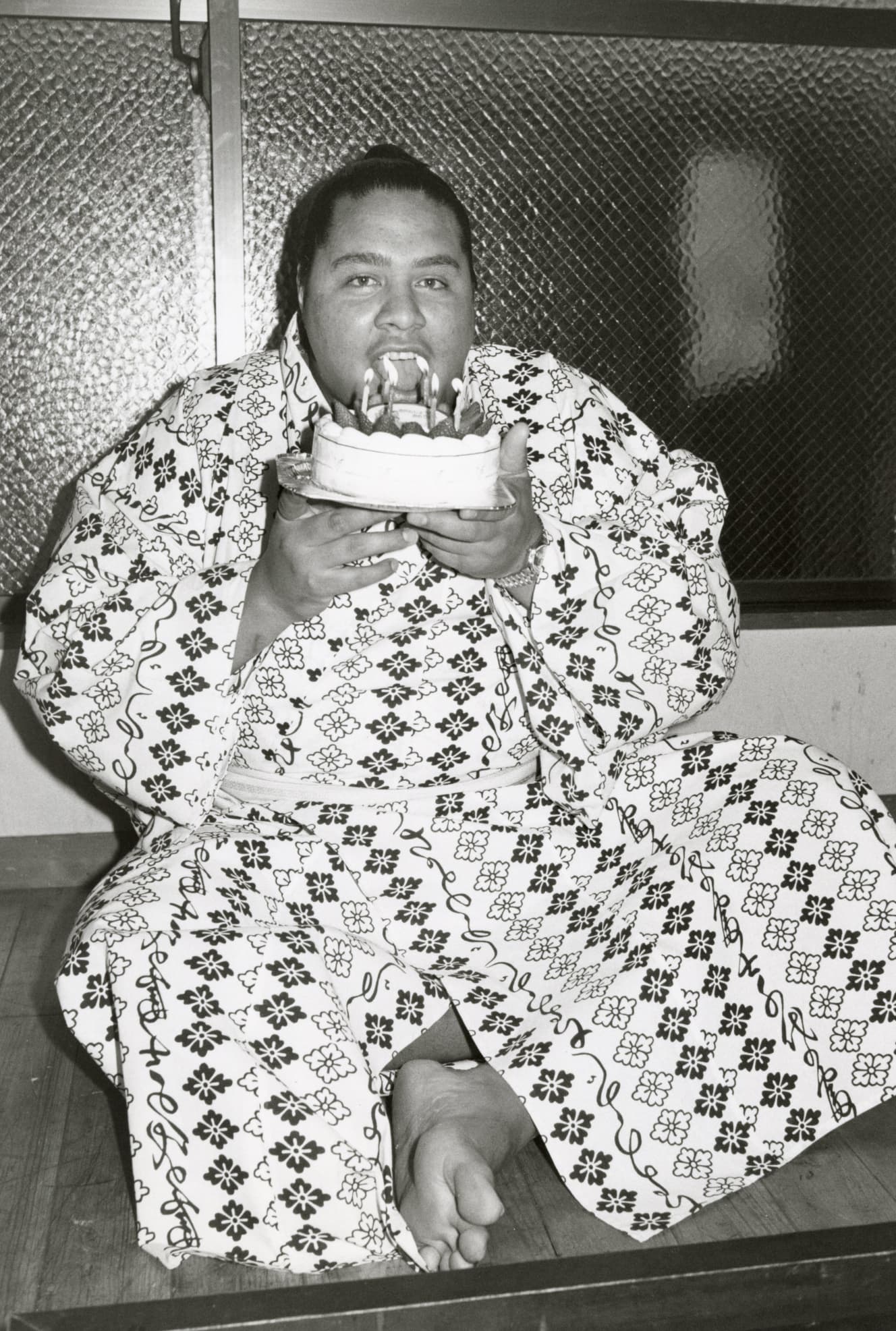In Memoriam] “Crying over crotch splitting…” Former Yokozuna Akebono’s passing reminds us of the “structure of bullying in the sumo world,” as he had revealed.
Akebono Taro, who became the first foreign-born yokozuna in history, has passed away at the age of 54.
He made his debut in the Spring Grand Sumo Tournament in 1988. He gained popularity through his rivalry with fellow debutants Takanohana and Wakanohana, which led to the era where the price for a four-person masuseki (box seat) exceeded 400,000 yen.
He was one of the key figures who ignited the sumo boom, becoming the 64th yokozuna.
He had a lifetime record of 21 wins and 21 losses against Takanohana, and 18 wins and 17 losses against Wakanohana, making their rivalry evenly matched. Their fierce battles are still talked about to this day.
He won a total of 11 championships. He was known to have played basketball at a university in Hawaii, but he clashed with the coach and dropped out after three months. His large physique was recognized by the former komusubi Takamiyama, now the stablemaster Tokitsukaze, who scouted him.
He reached the rank of yokozuna in 1993 and retired in 2001. After retiring, he remained in the Japan Sumo Association as a stablemaster, but in November 2003, he retired from the association and entered the world of martial arts.
There was a time when he, who had become a professional wrestler, was asked about the bullying issues among his disciples, which had become a major problem in the sumo association at the time. Akebono said,
“When I was a wrestler, I couldn’t do the splits properly, so while practicing with my legs spread out next to the ring, other wrestlers would come and sit on me one after another. It was so painful that tears would come out. But I was told that if I couldn’t do it, I would get injured, so I did it while crying.”
He said.
“When you fall from the dohyo, they say, ‘A wrestler who can’t do the splits will get seriously injured,’ so everyone was desperate to do the splits.”
However, he mentioned that such intensity was also becoming a problem of bullying. The position of yokozuna, achieved through rigorous training, even though he mentioned that the intensity of training has led to bullying issues.
Akebono had a never-give-up attitude in life, as described by Takanohana. No matter how many times he faced setbacks, he probably had an indomitable outlook on life.
“Today’s young wrestlers immediately feel it’s bullying and run back to their parents’ home. Maybe I came from an environment where I was opposed and came from Hawaii to Japan, but I had no place to go back to.”
Akebono shared, adding,
“The background behind strong wrestlers becoming unable to perform may be because rigorous training has become synonymous with bullying.”
Akebono was said to have an unbelievably kind side as well. He reportedly handed over the prize money he received from matches with Takanohana to an unknown homeless person on the same day. This act led to rumors that he lacked financial sense and was unable to have his own stable, although the truth remains unclear.
After transitioning to martial arts, Akebono was dubbed the losing Akebono and sneered at as Makebono (a play on his name and the Japanese word for losing). However, professional wrestler Keiji Mutoh, who brought him into wrestling, praised him, saying,
“I’m also a genius, but Akebono is a real genius.”
Akebono once mentioned,
“I can do a forward roll because I did sumo, but I can’t do a backward roll.”
Martial arts insiders also said that he was training intensely every day, as if recalling his days as a sumo wrestler.
Akebono, who contributed to that glorious sumo boom along with Takanohana, remains a figure remembered in records and memories. Rest in peace.
Text: Toshio Ishikawa (Entertainment Reporter)
Born in Tokyo in 1946. He has a unique career path from Shochiku Advertising Department to women's magazine reporter to entertainment reporter. He has appeared on "The Wide" and "Information Live Miyaneya" (both on Nippon Television Network Corporation), and currently appears regularly on "Mentai Wide" (Fukuoka Broadcasting System), "Su Matan" (Yomiuri TV), and Rainbow Town FM.
PHOTO: Shoichiro Tsuboi
